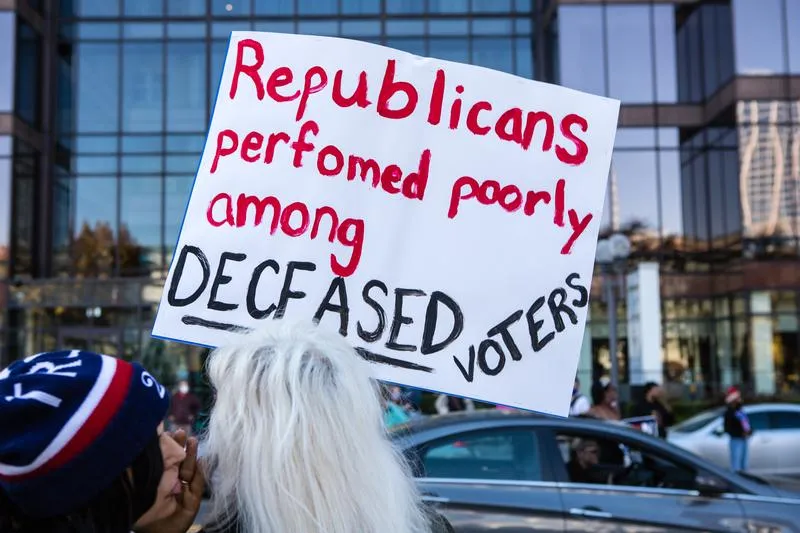
The Threat of Election Fraud: How Secure Are Our Votes?
The Threat of Election Fraud: How Secure Are Our Votes?
In a time of deep political division and uncertainty, the integrity of our elections has never been more important. The sanctity of the voting process is the cornerstone of democracy, yet concerns about election fraud have cast a shadow over recent elections. As we head into another crucial election cycle, it’s essential to ask: How secure are our votes?

The Growing Concerns Around Election Fraud
Election fraud is not a new issue. Throughout history, there have been instances of voter manipulation, ballot tampering, and other fraudulent activities aimed at swaying election results. However, in recent years, the debate over election integrity has intensified, driven by both real and perceived threats.
1. Mail-In Voting and Absentee Ballots
One of the most contentious issues has been the rise of mail-in voting. While mail-in ballots provide a convenient way for many Americans to vote, they also introduce new challenges and opportunities for fraud. Critics argue that the widespread use of mail-in ballots increases the risk of fraudulent votes being cast, as it’s more difficult to verify the identity of voters and ensure that ballots are not tampered with.
2. Voter ID Laws
Voter ID laws are another hot-button issue. Proponents argue that requiring voters to present identification is a common-sense measure to prevent fraud. Opponents, however, claim that such laws can disenfranchise certain groups of voters, particularly minorities and the elderly, who may have difficulty obtaining valid ID. The debate over voter ID laws highlights the delicate balance between securing the vote and ensuring that all eligible citizens can participate in the electoral process.
3. Electronic Voting Machines
As technology has advanced, many states have moved to electronic voting machines. While these machines can make voting more efficient, they also come with significant risks. Cybersecurity experts have warned that electronic voting systems could be vulnerable to hacking and manipulation, potentially allowing foreign or domestic actors to alter vote counts or disrupt the voting process. The lack of a paper trail with some electronic systems only adds to these concerns, as it can be challenging to audit the results.
What’s Being Done to Secure Our Elections?
In response to these concerns, federal and state governments, along with non-governmental organizations, have taken steps to improve election security. Here’s what’s being done:
1. Enhanced Cybersecurity Measures
In light of the potential for cyberattacks, election officials have been working to bolster the security of electronic voting systems. This includes implementing stronger encryption, conducting regular security audits, and providing cybersecurity training for election workers. Additionally, many states are now requiring paper backups for electronic votes, allowing for more reliable recounts and audits.
2. Voter Registration Integrity
Efforts are also being made to ensure that voter registration rolls are accurate and up-to-date. This includes removing deceased voters from the rolls, ensuring that voters are registered only in the state where they reside, and cross-referencing voter databases to prevent duplicate registrations. These measures help to reduce the risk of fraudulent votes being cast by individuals who are not eligible to vote.
3. Improved Ballot Tracking and Verification
For mail-in and absentee ballots, many states have introduced or expanded ballot tracking systems. These systems allow voters to track the status of their ballots online, ensuring that their votes are received and counted. Some states have also implemented signature verification processes, where the signature on the ballot envelope is compared to the voter’s signature on file.
4. Increased Transparency and Oversight
Transparency is key to maintaining public trust in the electoral process. To this end, many jurisdictions have increased the visibility of the vote-counting process, allowing observers from both major political parties to monitor the counting of ballots. Additionally, election results are often subject to independent audits and recounts to ensure accuracy.
How Secure Are Our Votes?
Despite these efforts, no system is foolproof, and concerns about election fraud will likely persist. However, it’s essential to recognize that many of the safeguards in place are effective in preventing large-scale fraud. While isolated incidents may occur, the overall integrity of the election process remains strong.
1. The Role of Public Confidence
One of the most significant challenges in securing our elections is maintaining public confidence. Misinformation and disinformation campaigns can undermine trust in the electoral process, even when no fraud has occurred. It’s crucial for voters to have accurate information about how elections are conducted and the measures in place to secure their votes.
2. The Importance of Vigilance
As voters, we all have a role to play in ensuring election integrity. This includes staying informed about the voting process, reporting any suspicious activity, and encouraging others to participate in the electoral process. By remaining vigilant, we can help to protect the sanctity of our elections.
The security of our elections is a critical issue that affects the very foundation of our democracy. While concerns about election fraud are valid, it’s important to recognize the significant efforts being made to secure the vote. As we approach another pivotal election cycle, staying informed and engaged is the best way to ensure that our votes count and that our democracy remains strong.
